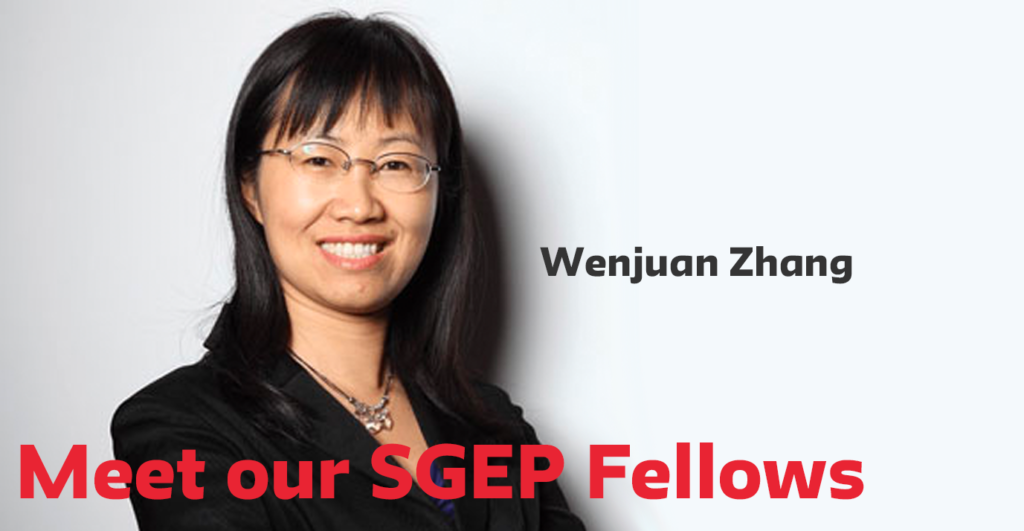
On Nov. 30, 2021, the SGEP fellows met for a seminar featuring the comparative perspective between India and China. Professor Wenjuan Zhang presented her work on Explaining the Divergence of Policy Outcome of Universalizing Elementary Education in India and China. Through her comparison of policy developments and the actual implementation in the two nations, Prof. Zhang raised an initial question for herself and the audience: how to explain the divergence of UEE progress in India and China? In order to answer the question, she further posed a series of questions to lead the discussion, such as, Is the divergence of policy outcome mainly an issue of policy-agenda setting or merely about the state capacity for policy implementation? For clarifying the direction, she further asked how to define policy priory, either through the wording of the policies or through the actual implementation? Prof. Zhang will keep searching for the answers to those questions.
Professor Wenjuan Zhang is Associate Professor and Associate Dean (International Collaborations) of Jindal Global Law School. She also serves as the first Executive Director of Center for India-China Studies of O. P. Jindal Global University, which has become one of the most dynamic intellectual hubs in bridging academia, policymakers, civil society stakeholders, business entrepreneurs from India, and China. More information on the Center can be found at https://jgu.edu.in/cics/.
Prof. Zhang’s research focuses on comparative constitutional studies and civil society development in India and China. Please see below for a list of her selected publications:
1. Zhang, W. (2021). Another Perspective to Read the Picture of Lawyering for Change in China. In John M., Devaiah V.H., Baruah P., Tundawala M., Kumar N. (eds.) The Indian Yearbook of Comparative Law 2019. (pp.319-355), Springer, Singapore. https://doi.org/10.1007/978-981-16-2175-8_15.
2. Wenjuan Zhang, Studies on the Constitutional Democracy and Its Implementation in India (CN), New World History, Vol. 4 (2020), pp. 40-57.
3. Wenjuan Zhang, Developing a New Analysis Framework for Examining Constitutionalism in Mainland China, Indian Journal of Constitutional Law, Volume 9 (2020), pp.144-172.
4. Wenjuan Zhang, Caste or Class Based Reservation in India: Constitutional Designing and Enforcement Challenges (CN), Tsinghua University Law Journal, Vol. 14, No. 1, 2020, pp.83-106.
5. Wenjuan Zhang, Constitutional Governance in India and China and Its Impact on National Innovation, in Kung-Chung Liu and Uday Racherla (eds.), Innovation, Economic Development and Intellectual Property in India and China: Comparing Six Economic Sectors, Springer (2019), pp.39-67, Link https://arciala.smu.edu.sg/research/open-access-publications.
6. Wenjuan Zhang, The New Strengthened Regulations of INGOs in India and China: Comparative Analysis and Reflections, China Non-profit Review (Tsinghua University, by Brill), 10 (2018), pp.319-348.
7. Wenjuan Zhang, Differences in Higher Education Reforms in India and China, India-China Chronicle, September-October 2018, pp. 22-26.
8. Wenjuan Zhang, The Internationalization of Chinese NGOs and Their Engagement with the United Nations, China Report 53:3 2017: pp 307-330.
From November 2021 to October 2022, she is a Visiting Fellow at the Ash Center for Democratic Governance and Innovation, Harvard Kennedy School. Prof. Zhang and her family will be residing in Cambridge, Massachusetts for most of 2022.
